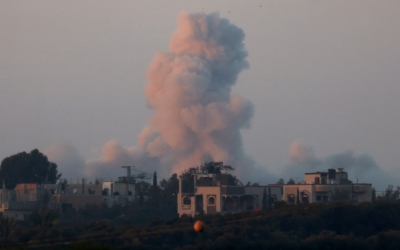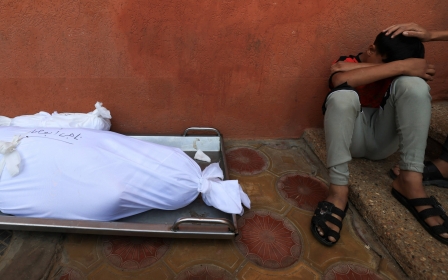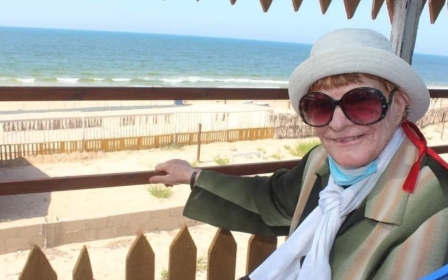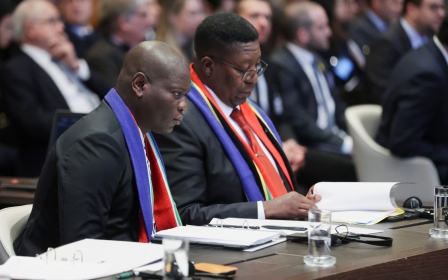Israel ICJ case: Middle East Eye's reporting used as evidence at world court
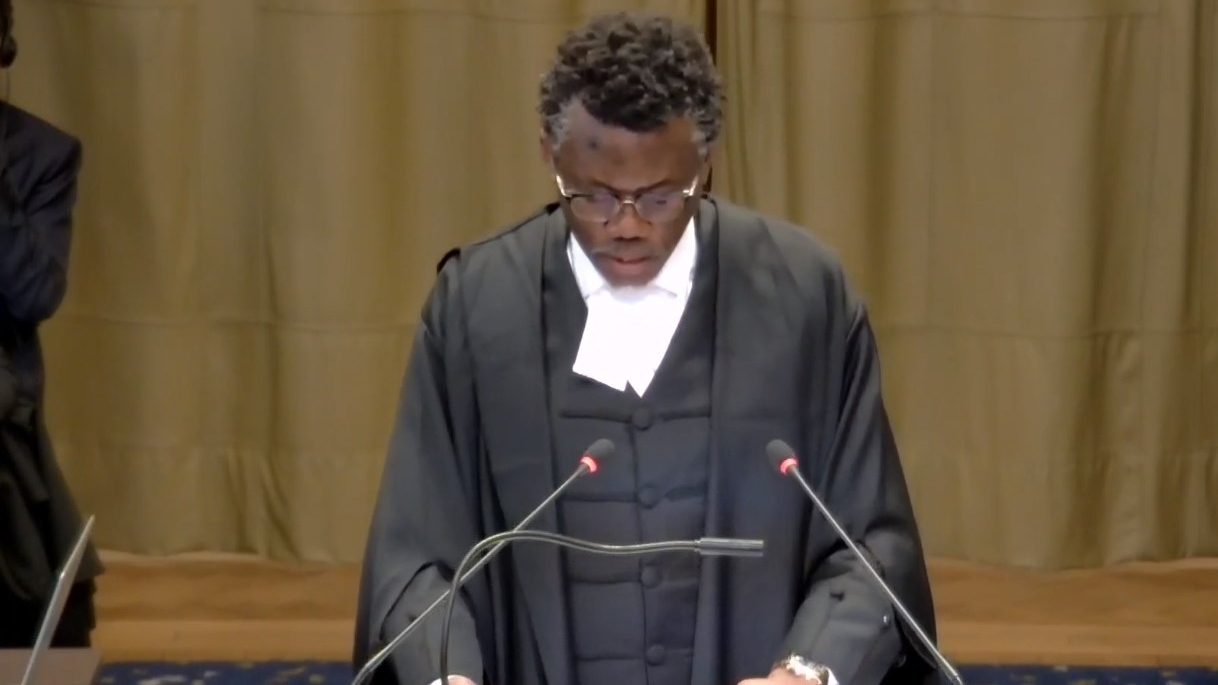
Videos and stories from Middle East Eye's coverage of the war in Gaza have been presented as evidence at the International Court of Justice as part of South Africa's case accusing Israel of genocide.
Thursday's presentation by South Africa's legal team on the opening day of hearings at the world court in The Hague included video footage posted on social media by MEE last month showing Israeli soldiers that appeared to show them singing and chanting for the occupation and destruction of Gaza.
The videos were played to the court as evidence of what South African lawyer Tembeka Ngcukaitobi termed Israel's "genocidal intent" towards the Palestinian people in Gaza.
One video showed Israeli soldiers on 7 December dancing and singing at an Israeli base where they vowed to "wipe off the seed of Amalek" and said there were no "uninvolved civilians" in Gaza.
The chant appears to be a reference to the ancient nation of Amalek which, according to the Bible, God commanded the Israelites to destroy. Ngcukaitobi cited previous comments by Israeli Prime Minister Benjamin Netanyahu in an address to soldiers on 28 October in which he said: "You must remember what the Amalek has done to you."
New MEE newsletter: Jerusalem Dispatch
Sign up to get the latest insights and analysis on Israel-Palestine, alongside Turkey Unpacked and other MEE newsletters
Netanyahu had repeated that message in a letter to Israel's armed forces days later, Ngcukaitobi added. The intent to destroy Gaza had been "nurtured at the highest levels of the state," he said.
"On December 7th 2023, Israeli soldiers proved that they understood the prime minister's message to remember what the Amalek has done as genocidal.
"They were recorded by journalists dancing and singing. We know our motto, that there are no uninvolved, that they obey one command, to wipe off the seed of the Amalek. The prime minister's invocation of Amalek is being used by soldiers to justify the killing of civilians, including children."
Ngcukaitobi also highlighted how Israeli soldiers had filmed themselves destroying infrastructure inside Gaza and played a clip translated by MEE, which showed an Israeli soldier destroying several buildings in the Shujaiyya area of northern Gaza.
"These are the soldiers putting into effect their command," he said.
Thursday's hearings also cited Middle East Eye Gaza correspondent Maha Hussaini's report on executions of Palestinians by Israeli soldiers in Gaza; a story by Rayhan Uddin about a 95-year-old Israeli army veteran who called on soldiers to "erase" Palestinian women, children and families; and Katherine Hearst's story about a drama teacher killed during Israeli air strikes targeting a refugee camp in the central Gaza strip.
South Africa's complaint to the ICJ also includes a number of references to MEE's reporting of the war in Gaza.
It referenced a story by Nadda Osman about the killing of a music teacher and a story by Nader Durgham about the killing of a student who gained the highest marks in Palestinian high school examinations last year.
South Africa submitted its case against Israel at the ICJ last month and has said Israel's actions in Gaza are "genocidal in character because they are intended to bring about the destruction of a substantial part of the Palestinian national, racial and ethnic group".
South Africa accuses Israel of breaching the United Nations Genocide Convention, which was drawn up after the Second World War in light of the atrocities committed by Nazi Germany against Jews and other persecuted minorities during the Holocaust.
Israel has rejected the accusations and will present its defence against the genocide claim on Friday.
During Thursday's proceedings, Professor Max du Plessis, another lawyer representing South Africa, said Israel had subjected the Palestinian people to an oppressive and prolonged violation of their rights to self-determination for more than half a century.
Du Plessis added that based on materials shown before the court, the acts of Israel are plausibly characterised as genocidal.
"South Africa's obligation is motivated by the need to protect Palestinians in Gaza and their absolute rights not to be subjected to genocidal acts," he said.
The case is likely to take years to resolve, but South Africa is asking the court to speedily implement "provisional measures" and "order Israel to cease killing and causing serious mental and bodily harm to Palestinian people in Gaza".
The court's decisions are typically recognised by member countries but the ICJ has few means of enforcing them.
This article is available in French on Middle East Eye French edition.
Middle East Eye delivers independent and unrivalled coverage and analysis of the Middle East, North Africa and beyond. To learn more about republishing this content and the associated fees, please fill out this form. More about MEE can be found here.


